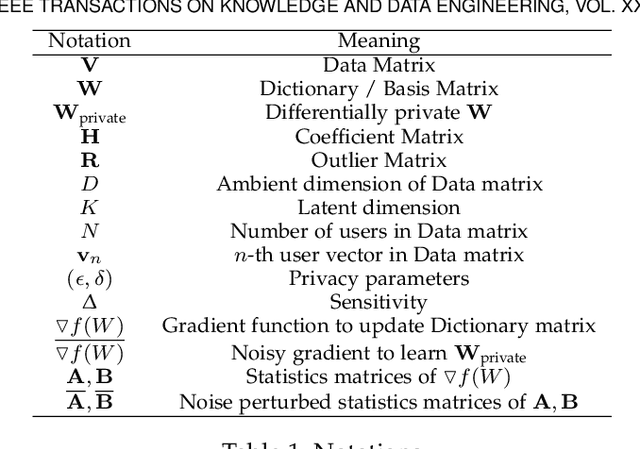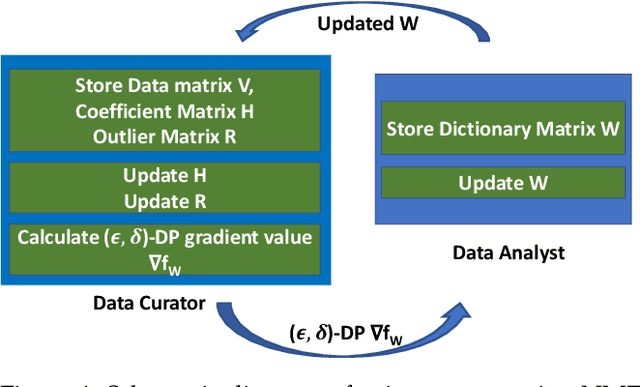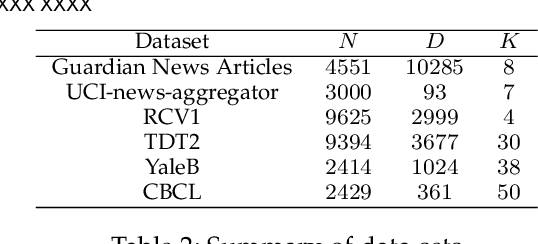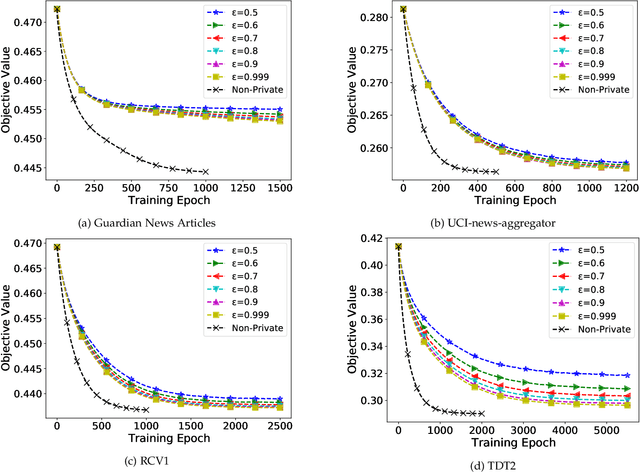Hafiz Imtiaz
Simultaneous Optimization of Efficiency and Degradation in Tunable HTL-Free Perovskite Solar Cells with MWCNT-Integrated Back Contact Using a Machine Learning-Derived Polynomial Regressor
May 24, 2025Abstract:Perovskite solar cells (PSCs) without a hole transport layer (HTL) offer a cost-effective and stable alternative to conventional architectures, utilizing only an absorber layer and an electron transport layer (ETL). This study presents a machine learning (ML)-driven framework to optimize the efficiency and stability of HTL-free PSCs by integrating experimental validation with numerical simulations. Excellent agreement is achieved between a fabricated device and its simulated counterpart at a molar fraction \( x = 68.7\% \) in \(\mathrm{MAPb}_{1-x}\mathrm{Sb}_{2x/3}\mathrm{I}_3\), where MA is methylammonium. A dataset of 1650 samples is generated by varying molar fraction, absorber defect density, thickness, and ETL doping, with corresponding efficiency and 50-hour degradation as targets. A fourth-degree polynomial regressor (PR-4) shows the best performance, achieving RMSEs of 0.0179 and 0.0117, and \( R^2 \) scores of 1 and 0.999 for efficiency and degradation, respectively. The derived model generalizes beyond the training range and is used in an L-BFGS-B optimization algorithm with a weighted objective function to maximize efficiency and minimize degradation. This improves device efficiency from 13.7\% to 16.84\% and reduces degradation from 6.61\% to 2.39\% over 1000 hours. Finally, the dataset is labeled into superior and inferior classes, and a multilayer perceptron (MLP) classifier achieves 100\% accuracy, successfully identifying optimal configurations.
Contextual Checkerboard Denoise -- A Novel Neural Network-Based Approach for Classification-Aware OCT Image Denoising
Nov 29, 2024Abstract:In contrast to non-medical image denoising, where enhancing image clarity is the primary goal, medical image denoising warrants preservation of crucial features without introduction of new artifacts. However, many denoising methods that improve the clarity of the image, inadvertently alter critical information of the denoised images, potentially compromising classification performance and diagnostic quality. Additionally, supervised denoising methods are not very practical in medical image domain, since a \emph{ground truth} denoised version of a noisy medical image is often extremely challenging to obtain. In this paper, we tackle both of these problems by introducing a novel neural network based method -- \emph{Contextual Checkerboard Denoising}, that can learn denoising from only a dataset of noisy images, while preserving crucial anatomical details necessary for image classification/analysis. We perform our experimentation on real Optical Coherence Tomography (OCT) images, and empirically demonstrate that our proposed method significantly improves image quality, providing clearer and more detailed OCT images, while enhancing diagnostic accuracy.
DP-CDA: An Algorithm for Enhanced Privacy Preservation in Dataset Synthesis Through Randomized Mixing
Nov 25, 2024Abstract:In recent years, the growth of data across various sectors, including healthcare, security, finance, and education, has created significant opportunities for analysis and informed decision-making. However, these datasets often contain sensitive and personal information, which raises serious privacy concerns. Protecting individual privacy is crucial, yet many existing machine learning and data publishing algorithms struggle with high-dimensional data, facing challenges related to computational efficiency and privacy preservation. To address these challenges, we introduce an effective data publishing algorithm \emph{DP-CDA}. Our proposed algorithm generates synthetic datasets by randomly mixing data in a class-specific manner, and inducing carefully-tuned randomness to ensure formal privacy guarantees. Our comprehensive privacy accounting shows that DP-CDA provides a stronger privacy guarantee compared to existing methods, allowing for better utility while maintaining strict level of privacy. To evaluate the effectiveness of DP-CDA, we examine the accuracy of predictive models trained on the synthetic data, which serves as a measure of dataset utility. Importantly, we identify an optimal order of mixing that balances privacy guarantee with predictive accuracy. Our results indicate that synthetic datasets produced using the DP-CDA can achieve superior utility compared to those generated by traditional data publishing algorithms, even when subject to the same privacy requirements.
Privacy-Preserving Matrix Factorization for Recommendation Systems using Gaussian Mechanism
Apr 11, 2023Abstract:Building a recommendation system involves analyzing user data, which can potentially leak sensitive information about users. Anonymizing user data is often not sufficient for preserving user privacy. Motivated by this, we propose a privacy-preserving recommendation system based on the differential privacy framework and matrix factorization, which is one of the most popular algorithms for recommendation systems. As differential privacy is a powerful and robust mathematical framework for designing privacy-preserving machine learning algorithms, it is possible to prevent adversaries from extracting sensitive user information even if the adversary possesses their publicly available (auxiliary) information. We implement differential privacy via the Gaussian mechanism in the form of output perturbation and release user profiles that satisfy privacy definitions. We employ R\'enyi Differential Privacy for a tight characterization of the overall privacy loss. We perform extensive experiments on real data to demonstrate that our proposed algorithm can offer excellent utility for some parameter choices, while guaranteeing strict privacy.
Human Activity Recognition from Wi-Fi CSI Data Using Principal Component-Based Wavelet CNN
Dec 26, 2022



Abstract:Human Activity Recognition (HAR) is an emerging technology with several applications in surveillance, security, and healthcare sectors. Noninvasive HAR systems based on Wi-Fi Channel State Information (CSI) signals can be developed leveraging the quick growth of ubiquitous Wi-Fi technologies, and the correlation between CSI dynamics and body motions. In this paper, we propose Principal Component-based Wavelet Convolutional Neural Network (or PCWCNN) -- a novel approach that offers robustness and efficiency for practical real-time applications. Our proposed method incorporates two efficient preprocessing algorithms -- the Principal Component Analysis (PCA) and the Discrete Wavelet Transform (DWT). We employ an adaptive activity segmentation algorithm that is accurate and computationally light. Additionally, we used the Wavelet CNN for classification, which is a deep convolutional network analogous to the well-studied ResNet and DenseNet networks. We empirically show that our proposed PCWCNN model performs very well on a real dataset, outperforming existing approaches.
Privacy-preserving Non-negative Matrix Factorization with Outliers
Nov 11, 2022



Abstract:Non-negative matrix factorization is a popular unsupervised machine learning algorithm for extracting meaningful features from data which are inherently non-negative. However, such data sets may often contain privacy-sensitive user data, and therefore, we may need to take necessary steps to ensure the privacy of the users while analyzing the data. In this work, we focus on developing a Non-negative matrix factorization algorithm in the privacy-preserving framework. More specifically, we propose a novel privacy-preserving algorithm for non-negative matrix factorisation capable of operating on private data, while achieving results comparable to those of the non-private algorithm. We design the framework such that one has the control to select the degree of privacy grantee based on the utility gap. We show our proposed framework's performance in six real data sets. The experimental results show that our proposed method can achieve very close performance with the non-private algorithm under some parameter regime, while ensuring strict privacy.
Improved Differentially Private Decentralized Source Separation for fMRI Data
Oct 28, 2019



Abstract:Blind source separation algorithms such as independent component analysis (ICA) are widely used in the analysis of neuroimaging data. In order to leverage larger sample sizes, different data holders/sites may wish to collaboratively learn feature representations. However, such datasets are often privacy-sensitive, precluding centralized analyses that pool the data at a single site. A recently proposed algorithm uses message-passing between sites and a central aggregator to perform a decentralized joint ICA (djICA) without sharing the data. However, this method does not satisfy formal privacy guarantees. We propose a differentially private algorithm for performing ICA in a decentralized data setting. Differential privacy provides a formal and mathematically rigorous privacy guarantee by introducing noise into the messages. Conventional approaches to decentralized differentially private algorithms may require too much noise due to the typically small sample sizes at each site. We leverage a recently proposed correlated noise protocol to remedy the excessive noise problem of the conventional schemes. We investigate the performance of the proposed algorithm on synthetic and real fMRI datasets to show that our algorithm outperforms existing approaches and can sometimes reach the same level of utility as the corresponding non-private algorithm. This indicates that it is possible to have meaningful utility while preserving privacy.
Distributed Differentially Private Computation of Functions with Correlated Noise
May 03, 2019



Abstract:Many applications of machine learning, such as human health research, involve processing private or sensitive information. Privacy concerns may impose significant hurdles to collaboration in scenarios where there are multiple sites holding data and the goal is to estimate properties jointly across all datasets. Differentially private decentralized algorithms can provide strong privacy guarantees. However, the accuracy of the joint estimates may be poor when the datasets at each site are small. This paper proposes a new framework, Correlation Assisted Private Estimation (CAPE), for designing privacy-preserving decentralized algorithms with better accuracy guarantees in an honest-but-curious model. CAPE can be used in conjunction with the functional mechanism for statistical and machine learning optimization problems. A tighter characterization of the functional mechanism is provided that allows CAPE to achieve the same performance as a centralized algorithm in the decentralized setting using all datasets. Empirical results on regression and neural network problems for both synthetic and real datasets show that differentially private methods can be competitive with non-private algorithms in many scenarios of interest.
Distributed Differentially-Private Algorithms for Matrix and Tensor Factorization
Apr 26, 2018



Abstract:In many signal processing and machine learning applications, datasets containing private information are held at different locations, requiring the development of distributed privacy-preserving algorithms. Tensor and matrix factorizations are key components of many processing pipelines. In the distributed setting, differentially private algorithms suffer because they introduce noise to guarantee privacy. This paper designs new and improved distributed and differentially private algorithms for two popular matrix and tensor factorization methods: principal component analysis (PCA) and orthogonal tensor decomposition (OTD). The new algorithms employ a correlated noise design scheme to alleviate the effects of noise and can achieve the same noise level as the centralized scenario. Experiments on synthetic and real data illustrate the regimes in which the correlated noise allows performance matching with the centralized setting, outperforming previous methods and demonstrating that meaningful utility is possible while guaranteeing differential privacy.
A Face Recognition Scheme using Wavelet Based Dominant Features
Oct 07, 2011



Abstract:In this paper, a multi-resolution feature extraction algorithm for face recognition is proposed based on two-dimensional discrete wavelet transform (2D-DWT), which efficiently exploits the local spatial variations in a face image. For the purpose of feature extraction, instead of considering the entire face image, an entropy-based local band selection criterion is developed, which selects high-informative horizontal segments from the face image. In order to capture the local spatial variations within these highinformative horizontal bands precisely, the horizontal band is segmented into several small spatial modules. Dominant wavelet coefficients corresponding to each local region residing inside those horizontal bands are selected as features. In the selection of the dominant coefficients, a threshold criterion is proposed, which not only drastically reduces the feature dimension but also provides high within-class compactness and high between-class separability. A principal component analysis is performed to further reduce the dimensionality of the feature space. Extensive experimentation is carried out upon standard face databases and a very high degree of recognition accuracy is achieved by the proposed method in comparison to those obtained by some of the existing methods.
* 12 pages, 12 figures, Published in Signal and Image Processing: An International Journal Vol 2 No 3
 Add to Chrome
Add to Chrome Add to Firefox
Add to Firefox Add to Edge
Add to Edge